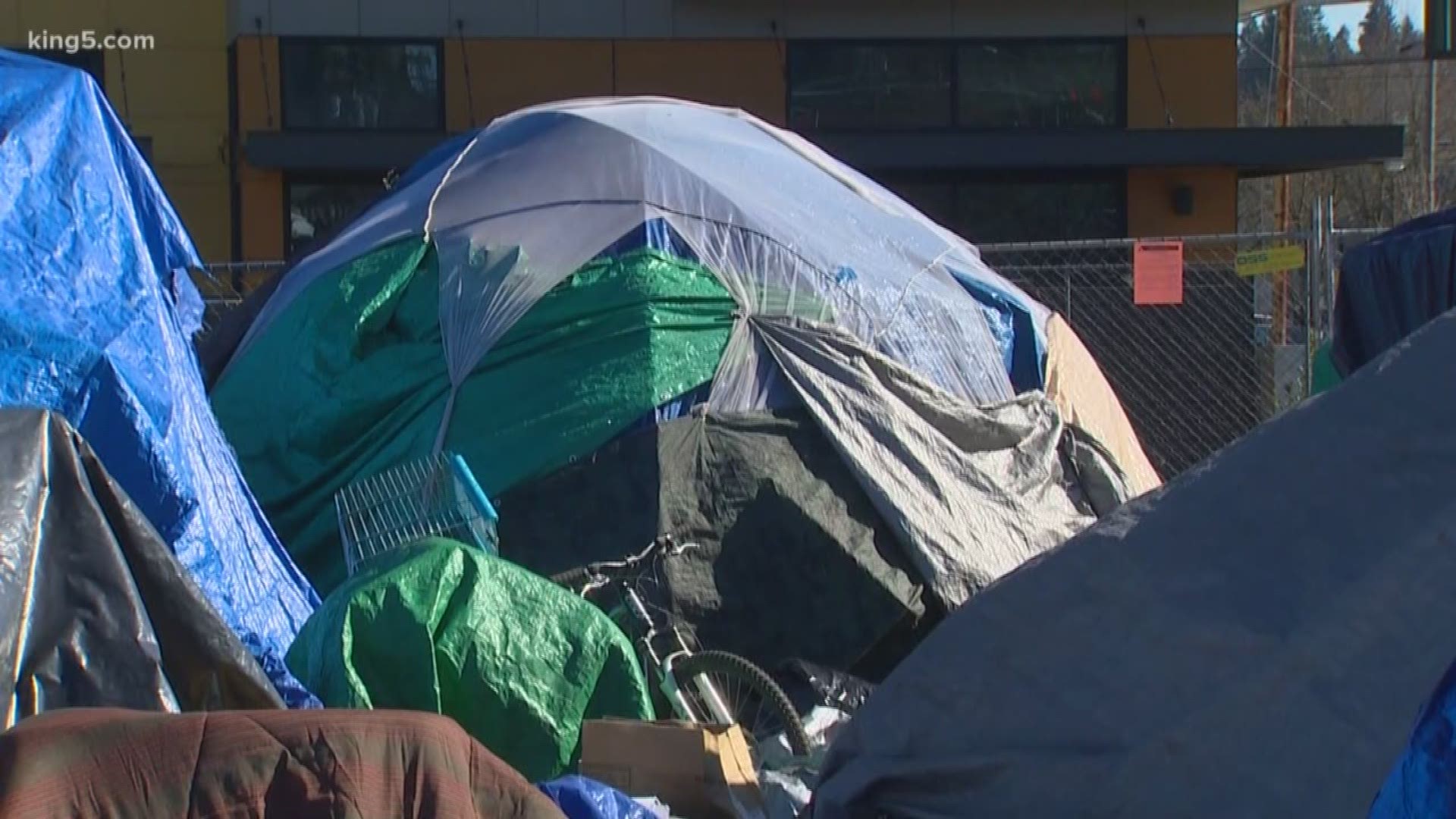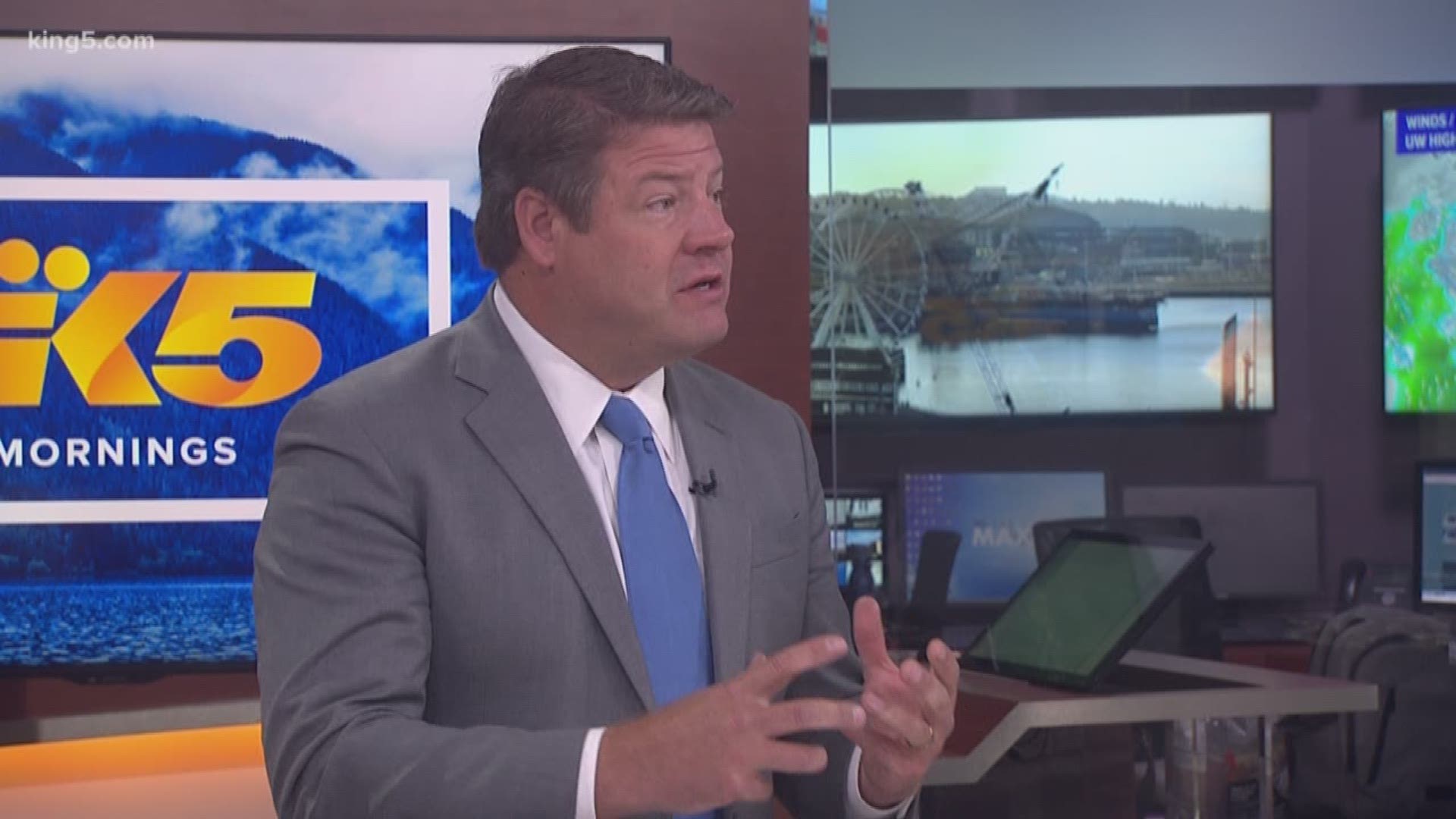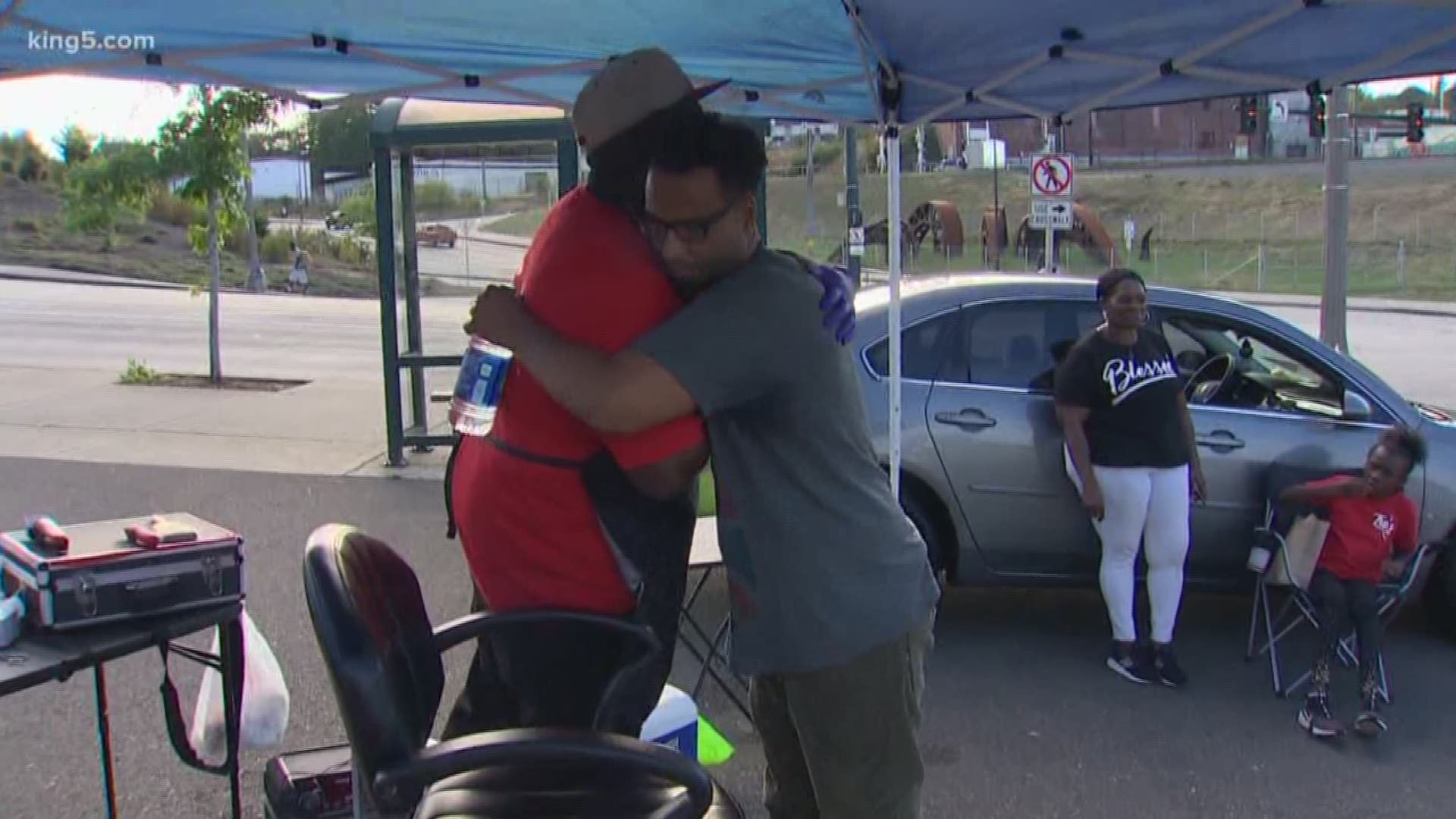Seattle Mayor Jenny Durkan believes a proposed regional authority to tackle the homeless crisis could create a more accountable system.
The authority that some city and county leaders celebrated Wednesday would "avoid duplication and inefficiencies" while making it easier to understand what works and what doesn't, Durkan said. The bottom line is still getting people indoors.
The proposal involves a plan to combine city and county operations and get them under one roof in a new office space to oversee, respond, and react to issues regarding homelessness. This proposal comes after months of discussions between the county and the city, and as the issues of unauthorized encampments have stretched into neighboring suburbs, like Auburn and Kent.
Nothing will be "one size fits all," but it will help leaders understand what works when it comes to addressing homelessness, Durkan said.
It's a plan that has drawn criticism.
Though King County Councilmember Reagan Dunn agrees a regional approach is needed, he says a "new layer of government" that is "essentially commanded by the City of Seattle" is not the answer.
"What we need is current elected leaders to make the tough choices in order to solve the problem, Dunn said, adding that Seattle continues to deal with a high homeless population that has remained due to "failed policies."
Dunn says a series of reforms and proposals is needed, along with some "tough love." That means adding more treatment beds for people suffering from addiction or recovering, as well as helping reunify people living on the streets with their families - throughout the country.
People are right to be skeptical, but the authority would "make things better and more efficient," Mayor Durkan said.
Washington state saw an overall drop this year in the number of homeless individuals from 2018, according to survey results released earlier this year by the Washington State Department of Commerce. Volunteers did a one-night count in January and recorded 21,621 homeless, which was a drop of about 3.1%.
The biggest gains were made with unsheltered individuals, which includes people sleeping outside, in cars, or parks. That population dropped by 1,022 people or 9.6%, according to the survey. Sheltered individuals, which includes those in emergency shelters, transitional housing, or in hotels and motels, grew by 322 people.



